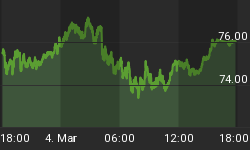 With the U.S. bailout script now being adopted globally and panic-driven selling abating, a period of calm (albeit perhaps temporarily) has settled over the financial markets. What better time to talk about the next round of stimulus:
With the U.S. bailout script now being adopted globally and panic-driven selling abating, a period of calm (albeit perhaps temporarily) has settled over the financial markets. What better time to talk about the next round of stimulus:
"...with the economy likely to be weak for several quarters, and with some risk of a protracted slowdown, consideration of a fiscal package by the Congress at this juncture seems appropriate." Bernanke. Economic outlook and financial markets. October 20, 2008
While it may be a stretch to conclude that Bernanke's speech single-handedly sparked a rally in the markets, that Bernanke helped switch the focus away from worries over another Great Depression to expectations of another stimulus package was nonetheless impressive. For that matter, any day that the Fed is not scrambling to expand an emergency lending program, holding secretive meetings with insolvent entities, or seriously considering cutting interest rates again can also be considered a good day.
Buyers No Longer Beware
Along with Buffett, a host of bears have recently come out to proclaim their bullishness, with some of the notables being Hussman, Kass, Grantham, and Faber. And while none of these individuals is oblivious to the possibility of another sharp decline in asset prices, they are no longer focused on the negatives. The story goes that with so much carnage in October 2008 the markets now look attractive from both a long-term value and short-term rebound perspective.
To The Value Minded
The problem with talking about the markets being 'cheap' is readily apparent when remembering the saying 'now you see it, now you don't.' As a quick example, some quality U.S. utility stocks were indiscriminately pounded for seemingly no reason in recent weeks, but the XLU index ended yesterday up 27% from its intraday low on October 10 (or +15% on a closing basis). After this strong bounce, and with the damage to the U.S. economy perhaps far from over, do the cyclical utilities still warrant serious attention today?
In fact, there are bargains in the markets if you have enough cash to enact a long-term investment approach. One such example may be previous Wish List holding Brown-Forman (in the case of BF.b the valuation story from a price/cash flow and dividend perspective is not super-compelling, even though the company is excellent.)
To The Thrill Seekers
If you are listening to the mob of bottom callers and trying to time a rebound in the markets it may be worth remembering the adage 'even a stopped clock is right two times a day'. Quite frankly, managers like Kass have been flopping around all year long (Kass went from buying LEH in July to saying 'It's time to get more bullish' in early September), and the word 'oversold' was being touted by many before, during, and after the sharp slide in October. In other words, if stocks do happen to put in a solid rebound of say 20+%, everyone will say they saw the rally coming, and yet no one (i.e. none of those mentioned above) is actually directly investing their own capital expecting such a scenario to unfold.
Stocks could end 2008 on a strong note, but...
Not only are we entering a historically strong period for equities, but the slumping price of gold is suggesting that financial crisis fears may have peaked (with government bailouts not immediately inflationary and asset deflation taking hold gold was recently rallying primarily in response to the financial crisis).
With that said, the great secular (?) bear market probably did not end in October 2002 and the 2008 bear is most definitely not about to become a sustainable bull today. Rather, if you transform the financial mess that is America into a rubik's cube it becomes clear that absolutely nothing has been solved. Instead, many sides of the cube are being puzzled over as policy makers hurriedly try to peel the stickers off and match up the colors:
"...the turmoil is the aftermath of a credit boom characterized by underpricing of risk, excessive leverage, and an increasing reliance on complex and opaque financial instruments that have proved to be fragile under stress."
With thanks to Bernanke, the above helps sum today's situation up. However, equally ominous still are the potential problems the U.S. may have to face when today's crisis points are finally contained, including the U.S.'s continued over reliance on foreign capital and what looks like - eventually - a resumption of the U.S. dollar's demise.
















